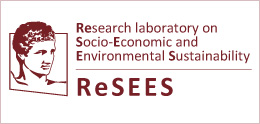Global Roundtable for Sustainable Shipping and Ports (SDSN Greece)
IPCC 2018 warned that exceeding 1.5 °C of global warming above pre-industrial levels will lead to unprecedented effects in terms of health, livelihoods, food security, water supply, human security, and economic growth.
Given this daunting prospect, it is urgent to develop mitigating measures related to maritime transport, an activity that emits, according to the 3rd IMO GHG study, around 940 million tonnes of CO2 annually, being responsible for about 2.5% of global greenhouse gas (GHG) emissions. The estimations for the imminent future are even more alarming, considering that in a business-as-usual scenario shipping emissions will increase between 50% and 250% by 2050, thus undermining the achievement of Paris Agreement objectives.
At the UN Climate Action Summit 2019, the Danish Minister of Foreign Affairs, CEOs from Maersk Container Industries, the Antwerp Port, together with the organization Sustainable Energy for All, launched the Getting to Zero Coalition. The Coalition brings together 74 major shipping companies and members of civil society. The objective for 2030, i.e. to have commercially viable zero-emission vessels operating along deep-sea trade routes, has been endorsed by 11 countries to date – Belgium, Chile, Palau, Morocco, Korea, Ireland, UK, New Zealand, Sweden and France. The engagement of several countries in this ambitious project sends the strong signal that all over the world shipping industry is ready to take a green ethical stance, making a clean break from the oil-derived sludge currently powering the world’s largest vessels.
As part of its continuous effort to transform the European economy into a more sustainable model, the European Commission launched the Circular Economy Action Plan in December 2015. This plan aims at facilitating and promoting the transition to the circular economy through a series of legislative proposals, sectoral actions and development measures in the fields of production, consumption, waste management, secondary raw materials while promoting research, development and innovation as fundamental cross-cutting elements in the transition process.
Port areas are a crucial element of focus for the implementation of the Circular Economy Action Plan and can be considered ideal hotspots for further assessment and incorporation of circular economy strategies. The importance of these areas depends on the role of ‘matchmakers’ and crossing-points for all kinds of waste and industrial flows, and their function as logistic hubs for import and export of waste materials. Besides, ports accommodate industries that are active in treatment, collection and shipment of waste and stimulate the emergence of innovation circles.
Based on these considerations, the LOOP-Ports project, supported by EIT Climate-KIC, aims to promote the transition towards circular economy in this sector through the creation of a network of ports that will facilitate the exchange of information and experiences between its members, establish contact between different stakeholders, as well as create synergies and offer various training and awareness-raising tools to the actors involved in the port community.
The Global Roundtable for Sustainable Shipping and Ports was launched at the COP25 in December 2019 in Madrid, Spain. This initiative aims at bringing together researchers and technology developers, shipbuilders, shipowners, ports, policymakers and politicians, from around the globe, to work on technological and policy innovations seeking net-zero emissions in the maritime sector by 2050. The Initiative will be composed of a monthly participatory workshop, seeking to co-design a sustainable future vision and to identify technological solutions and financing tools that can support the identified pathways towards the future vision. The methodology followed by SDSN Greece, which has a more than 10-year experience on Living Labs and roundtables organisation, is Systems Innovation approach.
The Third Sustainability Summit, held in Athens, Greece on 16th-17th October 2019, gave key stakeholders the chance to initiate preliminary discussions on this issue. After this opening step, the Global Roundtable for Sustainable Shipping and Ports was launched at the COP25 in December 2019 in Madrid, Spain.
This Initiative will seek to address innovative solutions through a global dialogue on:
- Synergies between the maritime, the energy and the financial sector, ports, Governments and Universities and NGOs
- Implementation of existing international and national policies & Increase of public policy support
- Incentives for the low carbon transition supporting R&D and innovation
- Upscale best practices in maritime decarbonization internationally
- Available financial tools and investments
Timeline:
27/11/2020: Fifth meeting of the Global Roundtable for Sustainable Shipping and Ports
31/10/2020: Fourth meeting of the Global Roundtable for Sustainable Shipping and Ports: The port of Piraeus case
30/09/2020: Third meeting of the Global Roundtable for Sustainable Shipping and Ports
31/08/2020: Second meeting of the Global Roundtable for Sustainable Shipping and Ports
31/07/2020: Kick-off meeting of the Global Roundtable for Sustainable Shipping and Ports (Press release)
For more information contact:
Prof. Phoebe Koundouri
Prof. Andreas Papandreou




 76 Patission Str.
76 Patission Str. 30 2108203 455
30 2108203 455
